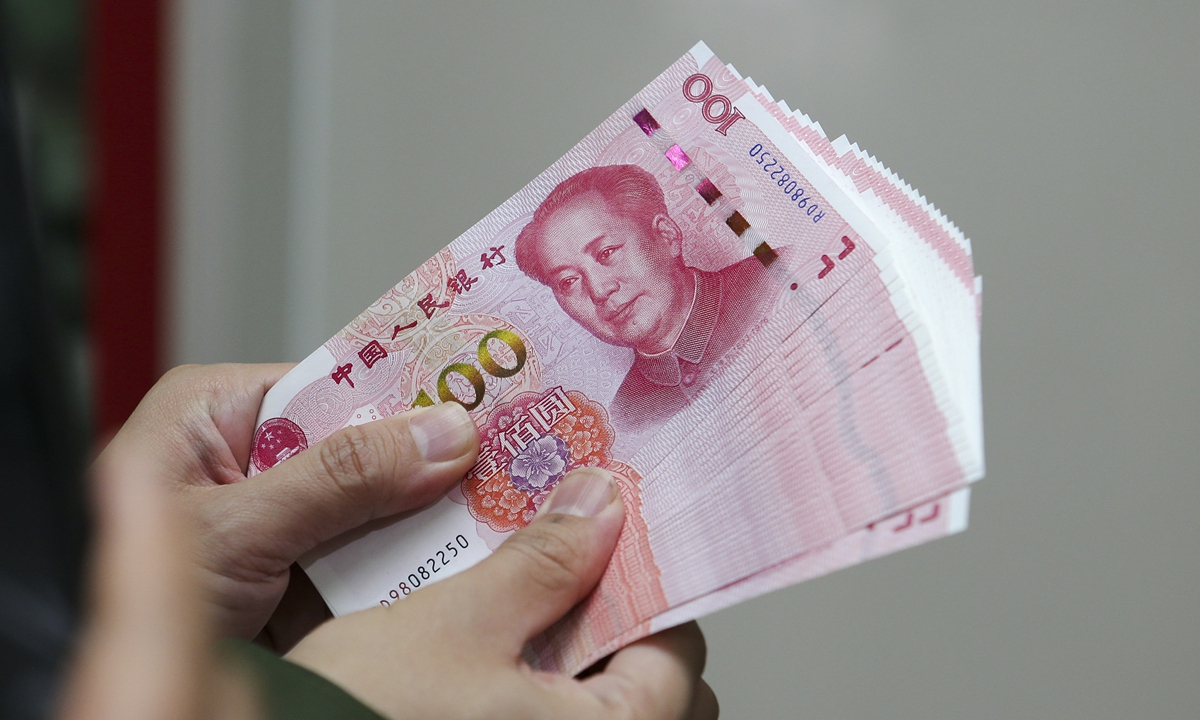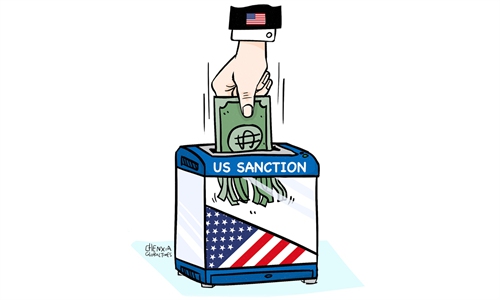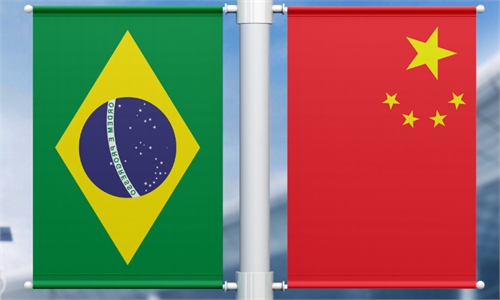
RMB Photo:VCG
With the de-dollarization wave building as many nations seek alternatives to the greenback to reduce their dependence on the US, the internationalization of the yuan is gaining momentum.
Bangladesh reportedly approved a payment of $318 million to a Russian nuclear power developer using the yuan, the latest instance of countries bypassing the US dollar and using the Chinese currency in international payments, which will accelerate the trend of de-dollarization worldwide, experts said.
The decision to use the yuan was made at a meeting of the Bangladesh Finance Ministry's economic relations division on Thursday, the Washington Post reported on Monday, citing Uttam Kumar Karmaker, who heads the ministry's European affairs wing.
Although the decision was made, the transaction is yet to be completed because payment details still need to be resolved, the official said, according to the report.
Bangladesh is building the first of two nuclear power plants in collaboration with Russia's state-owned atomic company Rosatom in a $12.65 billion project, 90 percent of which is financed through a Russian loan repayable within 28 years, with a 10-year grace period, according to a Reuters report.
Earlier attempts to address the problem of payments between the two countries were thwarted by US sanctions last year.
Cao Yuanzheng, chief economist at Bank of China International, told the Global Times on Tuesday that it is a major sign of progress for the Chinese currency to play a bigger role in international payments for a big infrastructure project without China's involvement.
Bangladesh will clear pending payments from its own reserves of yuan. Russia will receive payment through China's Cross-Border Interbank Payment System, a yuan-driven alternative to the dollar-dominated SWIFT system, according to Indian media First Post.
"The choice jointly made by Bangladesh and Russia indicated that the yuan is being used more broadly in the international market, and it is a reasonable arrangement for the non-convertible currency," Cao noted.
The gains for the yuan are inseparable from China's economic power, as the world's second-largest economy offers great certainty and confidence amid global uncertainties and a complex environment, Zhou Maohua, an economist at Everbright Bank, told the Global Times.
China's GDP grew by 4.5 percent year-on-year in the first quarter, according to the National Bureau of Statistics on Tuesday, beating market expectations.
The yuan has retained its position as the fifth most active currency for global payments. Its global share stood at 2.19 percent in February, up from 1.91 percent in January, according to SWIFT.
Bangladesh's yuan solution comes amid a rising trend of de-dollarization in more countries.
Some major economies, both in developed countries and emerging markets, are striving to ditch the US dollar by innovating cross-border payment and settlement mechanisms, signing bilateral currency agreements and promoting the diversification of currencies.
Brazil and Argentina, the two largest economies in South America, announced in January that they would launch a currency union, which will drive trade in the region and rely less on the US dollar.
The Chinese currency is gaining popularity in Russia, and local currency settlements that avoid the US dollar are going from strength to strength.
According to a report from the Bank of Russia, the country's central bank, the share of the yuan/rouble pair trading on the Russian exchange market reached a new high of 39 percent in March. During the same period, the share of the US dollar/rouble pair fell to 34 percent, the lowest in recent years, Tass reported.


